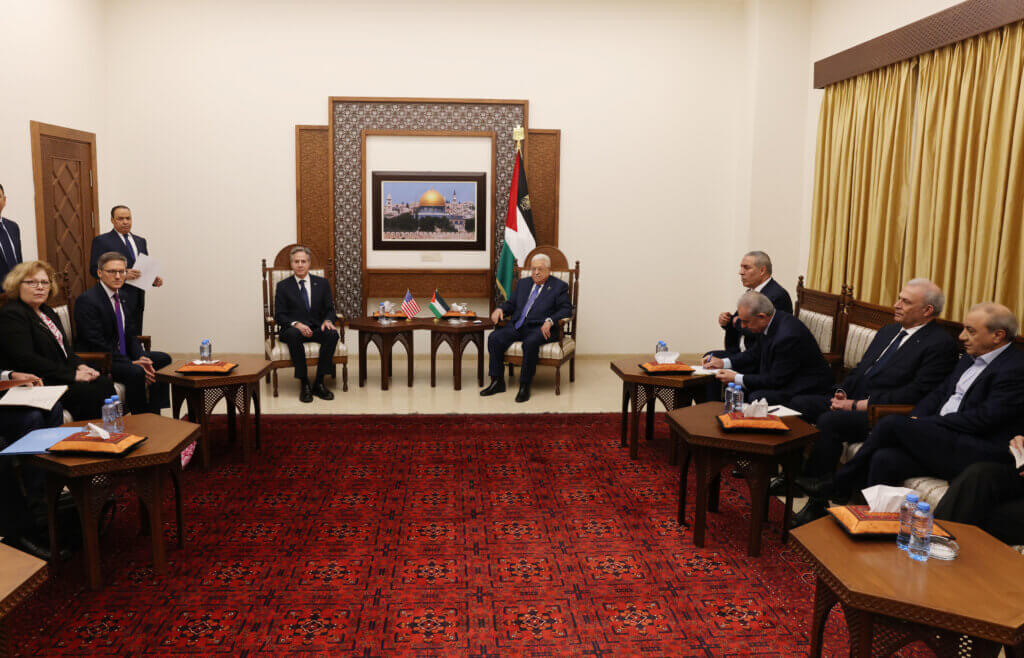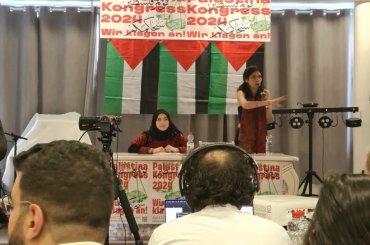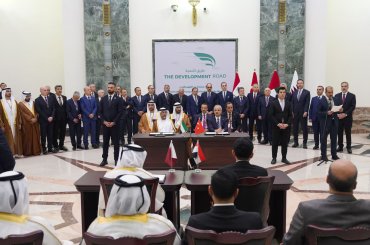The Palestinian Authority functions as a tool for delegitimizing the Palestinian armed resistance and obstructing the rise of an alternative national leadership. Israel, along with its strategic allies — the United States and Western European countries — strategically employs the PA not only to delegitimize the Palestinian armed resistance but also to impede the representation of the Palestinian people by factions that reject the U.S. political framework for a settlement.
This framework advocates for a Palestinian state with limited sovereignty, demilitarization, and, notably, not as an independent goal but as an outcome of a negotiated deal. Moreover, the political settlement framework excludes the right of Palestinian citizens to return to their homeland — a fundamental principle of the Palestinian cause.
The Palestinian official leadership, led by PA President Mahmoud Abbas, holds sway over both the PA and the decision-making and institutions of the Palestine Liberation Organization (PLO). This leadership not only accepted the U.S.-pushed political framework but also fell short of achieving any significant national objectives, thereby jeopardizing the entire Palestinian national cause. Since its establishment in 1994, the PA’s existence and its alignment with U.S. policies have granted Israel the time and conditions to advance its colonial settlement enterprise, especially in Jerusalem, without encountering interruptions.
Since the beginning of the Israel war on Gaza on October 7, the Palestinian official leadership has intensified its activities in alignment with the U.S.-envisioned role designated to it. The PA leadership has issued numerous statements, whether through interviews or televised addresses, predominantly focused on condemning and disapproving of the Palestinian armed resistance. They claim that these factions do not represent the Palestinian people, and some have blamed the Palestinian resistance factions, especially Hamas, for acting irrationally by engaging in a war with formidable Israel, which caused the humanitarian crisis in Gaza.
In a political address on the ninth day of the war, the PA president criticized Hamas, asserting that their actions did not represent the Palestinian people. He emphasized that the PLO, which they control, is the sole legitimate representative of the Palestinian people and underscored the importance of peaceful resistance as the only legitimate means to oppose Israeli occupation. It’s worth noting that this statement was later retracted by his office, but it did suggest a rejection of armed struggle and questioned its legitimacy.
Hussein al-Sheikh, Secretary General of the Executive Committee of the PLO and one of the potential successors to President Abbas, stressed in an interview with Reuters in late December 2023 the importance of having one Palestinian Authority governing both the West Bank and Gaza Strip. Al-Sheikh, in delegitimizing Hamas’ political approach, asked it to make a “serious and honest assessment and reconsider all its policies and all its methods.” His statement triggered wide condemnation from Palestinian factions.
In mid-January 2024, Ahmad Majdalani, a PA minister and member of the PLO Executive Committee, stated in an interview that “Hamas is a terrorist organization in its current form, its current program, and its current political discourse.” Although Majdalani’s statement faced widespread criticism from Palestinian citizens, he did not retract his position.
Riyad al-Maliki, the PA Minister of Foreign Affairs, outlined the PA’s conditions for Hamas to be assimilated under the PA umbrella in an interview with Euronews in Arabic on January 22, 2024. These conditions include Hamas transforming into a political party, renouncing armed struggle, and surrendering its weapons. He emphasized that Hamas should recognize all UN resolutions regarding Palestine, especially UNSC resolutions 242 and 338, framing the political conflict with Israel within the 1967-occupied territories, meaning it should not refer to the political conflict before this date.
Al-Maliki stressed that for Hamas to be considered legitimate, it should recognize Israel’s right to exist without using it as a bargaining chip. Most importantly, he asked Hamas to recognize the legitimacy of the Oslo peace agreement with Israel, which led to the establishment of the PA. By imposing these conditions, which not only Hamas but many Palestinian factions reject, he aimed to convey that the official leadership’s methods are the only legitimate way to pursue the Palestinian struggle.
The position of PA officials is unsurprising, considering the Oslo interim peace agreement with Israel, which delineates the PA’s role as an Israeli security contractor in exchange for specific benefits related to administering Palestinian population centers. The PA has dutifully executed its mandate, conducting routine arrests and surveillance of Palestinian individuals, whether they are involved in actions against Israel or are activists opposing its corrupt practices.
The PA has strategically not only aimed to delegitimize the Palestinian resistance but has also intensified its repressive actions. It suppressed any demonstrations and marches supporting Gaza in West Bank cities, resorting to shooting at demonstrators and attacking participants, resulting in the loss of many Palestinian civilian lives. Furthermore, the PA has recently detained individuals expressing support for the Palestinian resistance. Simultaneously, the PA and its political party, Fatah, have orchestrated demonstrations in allegiance to President Abbas. During these events and on social media, members of Fatah and the security apparatus have labeled anyone critical of the PA’s position as someone fostering discord and division between the Palestinian people and the PA leadership.
Moreover, the Biden administration, while considering various post-war scenarios for dealing with the Gaza Strip and assuming an Israeli victory, has contemplated assigning a role to the PA in the administration of the Strip, in collaboration with American forces and so-called international forces. According to numerous media reports, including The Washington Post, the U.S. Secretary of State has engaged in discussions with Abbas, who has expressed his willingness to participate in such an arrangement.
The PA has surpassed the bounds of security coordination with Israel and is now predominantly implementing the security agenda aligned with the U.S. and Israel. This has placed the PA in a challenging position, making it arduous to justify to ordinary Palestinians why such actions are necessary, particularly amid the ongoing Israeli war on Gaza. Consequently, the PA is increasingly perceived as a direct collaborator with Israel. This sentiment was mirrored in the latest poll, where 60 percent of Palestinians called for the dissolution of the PA, and 90 percent demanded the resignation of PA President Abbas.



You would think the PA would have a back bone that would do everything they can to remove IOF with their own Police Force except the IOF does many raids even more after October the 7th. Not to mention thousands are under Administrative Detention with no charges.
I wonder if Hamas political wing would run the West Bank way better than the PA at least they would have a spine in doing so.